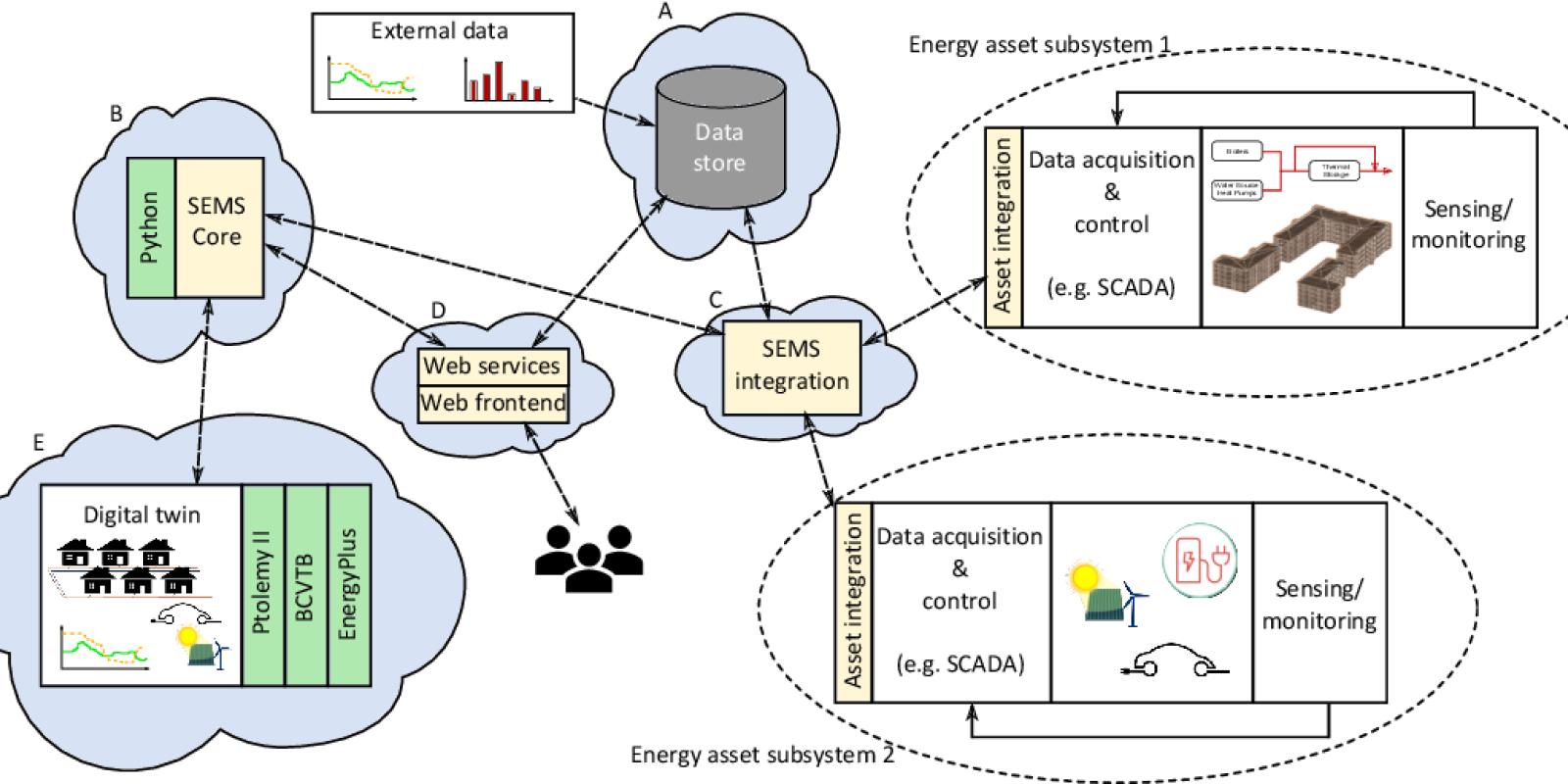Integration of an energy management tool and digital twin for coordination and control of multi-vector smart energy systems

As Internet of Things (IoT) technologies enable greater communication between energy assets in smart cities, the operational coordination of various energy networks in a city or district becomes more viable. Suitable tools are needed that can harness advanced control and machine learning techniques to achieve environmental, economic and resilience objectives. In this paper, an energy management tool is presented that can offer optimal control, scheduling, forecasting and coordination services to energy assets across a district, enabling optimal decisions under user-defined objectives. The tool presented here can coordinate different sub-systems in a district to avoid the violation of high-level system constraints and is designed in a generic fashion to enable transferable use across different energy sectors. The work demonstrates the potential for a single open-source optimisation framework to be applied across multiple energy vectors, providing local government the opportunity to manage different assets in a coordinated fashion. This is shown through case studies that integrate low-carbon communal heating for social housing with electric vehicle charge-point management to achieve high-level system constraints and local government objectives in the borough of Greenwich, London. The paper illustrates the theoretical methodology, the software architecture and the digital twin-based testing environment underpinning the proposed approach.




